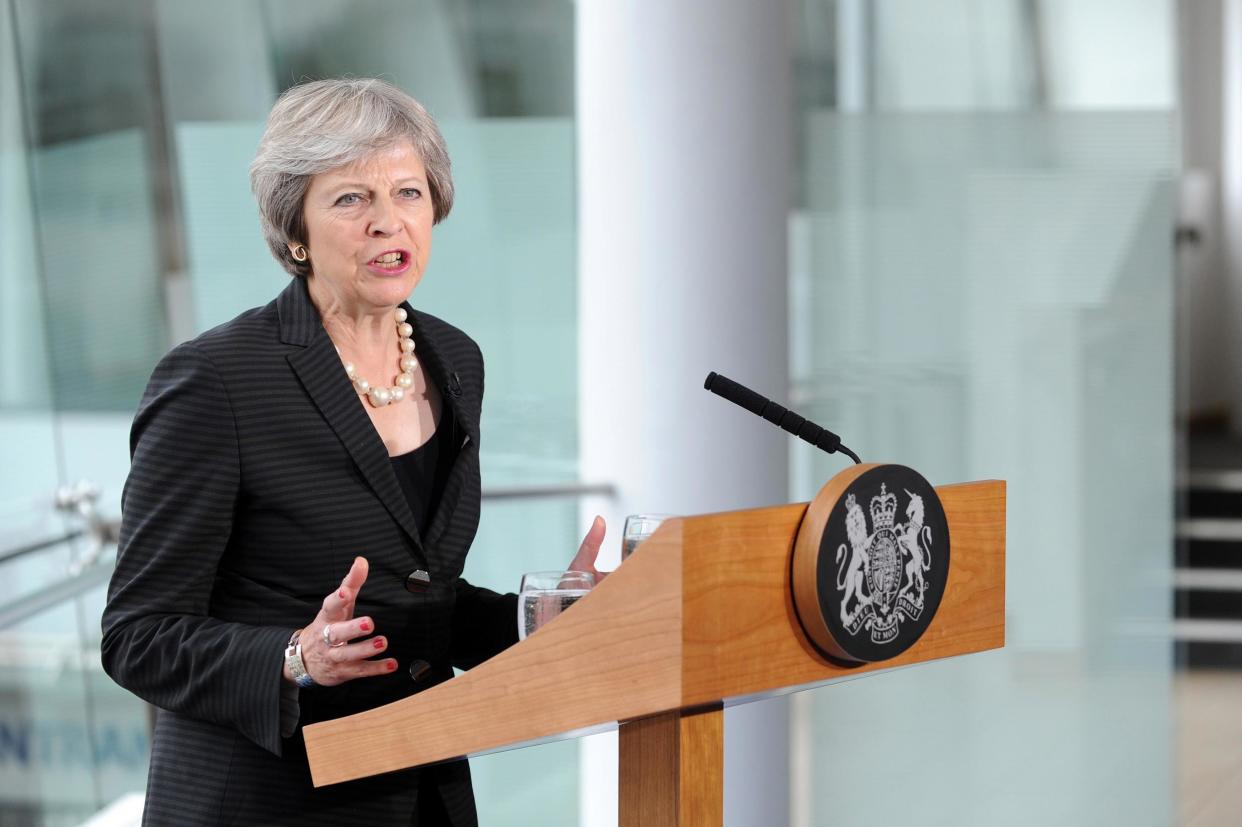The Tory split is not Leavers versus Remainers any more, it’s dealers versus no-dealers

The prime minister has survived again. As she prepares to set off on a hill-walking holiday, I hear she commented that it is “harder to go downhill than up”. There is a metaphor for her premiership. She is defined by adversity. The steeper the challenge, the more she seems to relish it.
She forced her cabinet to choose between a distant and costly relationship with the EU and a closer, less costly one, and lost only two of its members. She won the votes in parliament that mattered on the Brexit trade and customs bills, and did not even need the chief whip’s sharp practice to do so.
And Boris Johnson showed he can still write a stirring speech, but it failed to stir as many as the 48 of his colleagues needed to launch a challenge to her leadership. It is suggested that about 40 of them have written letters to Sir Graham Brady, the chair of the 1922 Committee. The true figure may be about half that, with the most telling detail being Simon Clarke, a Tory backbencher who was one of the TV doughnut of supporters around Johnson for his speech, and who then went to the meeting of the 1922 to announce that he had withdrawn his letter.
There may be other ministers who will resign. Yesterday’s leak of Andrea Leadsom’s comment at the Chequers cabinet meeting that she “hated” the prime minister’s Brexit plan puts her near the exit door. Likewise Esther McVey’s refusal to endorse the Chequers deal (her partner Philip Davies is one of only two MPs known to have written a letter to Sir Graham). But they haven’t resigned yet, and anything that hasn’t happened yet might never happen.
The significance of the Chequers plan is that it has recast the divisions in the Conservative Party. As one minister put it to me, “Brexit is not about Leavers versus Remainers any more, it’s about dealers versus no-dealers”. Johnson’s resignation and his resignation speech put him at the head of those in the party who would prefer just to walk away from the EU – whatever the cost – than to do a deal that, in effect, keeps us in the single market for goods and food.
Michael Gove is now the leader of the dealer wing of the Leavers. It was notable that Johnson in his speech reserved his most vivid invective for the former co-leader of the Vote Leave campaign. “It is absolute nonsense to imagine,” the former foreign secretary said, “as I fear some of my colleagues do, that we can somehow afford to make a botched treaty now and then break and reset the bone later on.”
But in his resignation letter, Johnson admitted that “my side of the argument were too few to prevail” in cabinet. The question for the next stage of the prime minister’s arduous climb up the Brexit mountain is how many of his side of the argument there are in the House of Commons.
That was the significance of the show of strength around Johnson as he made his speech – it looked impressive on TV but less so in the chamber. The true Brexit faction led by Jacob Rees-Mogg, the European Research Group, claims 60 to 80 members. The new cleavage may have taken a few dealers off that total, but further concessions to the EU in negotiations could push the numbers up again.
There is no doubt that the Commons’ arithmetic looks daunting for May. I wrote last week that there could be as many as 100 Tory no-dealers when it comes to parliament’s final vote on whatever May brings back from Brussels.
That would mean May needed 94 opposition MPs to back her. One Labour MP who would support her rather than plunge the country into the “disaster” of a no-deal Brexit told me there were only 60-70 Labour MPs who would do the same. “Jeremy Corbyn would think it’s a chance to bring her down,” they said, and a lot of Labour MPs would feel bound to follow an instruction to vote against.
Personally, I wonder how Keir Starmer, the shadow Brexit secretary, could square a vote to turn Kent into a lorry park with what he told Labour Business two weeks ago: “We have a duty to make [Brexit] work.” But there is little doubt that Corbyn, John McDonnell and their close advisers would be happy with a hard Brexit – which is what they would end up with, as Labour MPs are most unlikely to be able to force a general election.
Assuming the Scottish National Party’s 35 MPs refuse to vote for a “Tory” deal, it is quite possible the country’s future could be decided by the 12 Liberal Democrats.
And all of this assumes that May is able to negotiate a deal with the EU that resembles the Chequers plan. Well, she finds it easier to go uphill.

 Yahoo News
Yahoo News 
